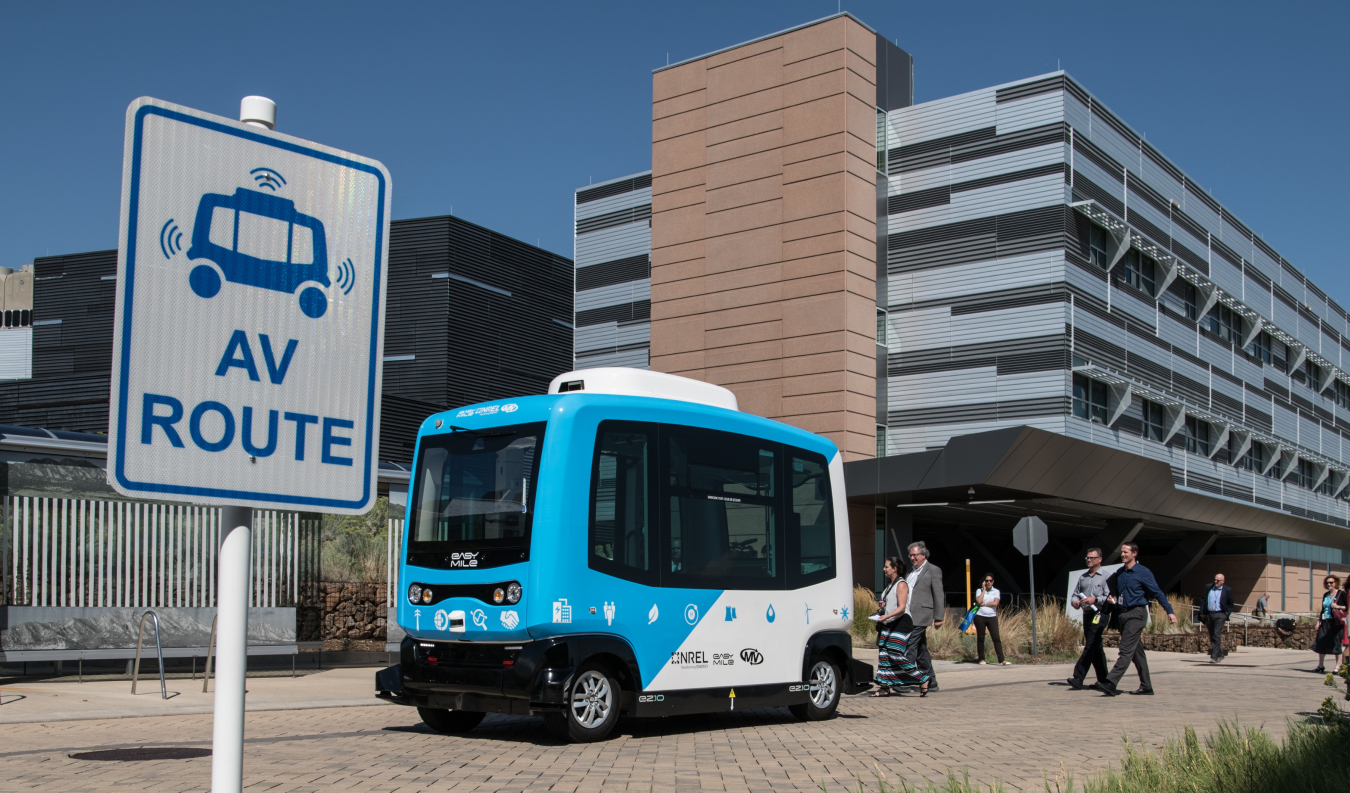EERE at the Forefront of the Next Generation in Transportation
Office of Critical Minerals and Energy Innovation
October 9, 2019
Disruptive forces, including automated, connected, electric, and/or shared mobility, are impacting energy consumption in transportation. Technological innovations to vehicles, such as reducing the cost of advanced batteries that power plug-in electric vehicles, co-optimizing fuels and engines, and using lightweight components enabled by advanced materials, reduce cost while increasing efficiency and performance. The Office of Energy Efficiency’s (EERE’s) Vehicle Technologies Office (VTO) is at the forefront of this market shift.
VTO supports research and development (R&D) that investigates how disruptive forces will impact energy consumption in transportation. A recent study shows that the disruption connectivity and automation bring to the transportation sector could result in a potential 200% increase in 2050 baseline energy consumption, or a 60% decrease in energy use.
Nearly every plug-in electric vehicle (PEV) on the road today uses VTO-developed battery technology. In fact, VTO-funded research has reduced the cost of advanced batteries by 80%, lowering the cost of electric vehicle battery packs to $185 per kilowatt-hour. New innovations in electric motor technology, such as printable magnets and novel architectures, could lead to smaller high energy density systems that can enable more affordable and better performing PEVs.
EERE’s Co-Optimization of Fuels & Engines (Co-Optima) initiative, sponsored by VTO and the Bioenergy Technologies Office, has brought together top scientists, engineers, and analysts to tackle efficiency and performance through simultaneous improvements to fuels and engines. Co-Optima has the potential to achieve significantly higher efficiencies than are possible with current fuels and engines. Research shows that these improvements to fuels and engines could improve passenger fuel economy by as much as 35% by 2030 (versus a 2015 baseline of 36 miles per gallon).
Developing the next-generation of high-efficiency, low-emission internal combustion engines requires a combination of advanced materials and new materials processing techniques to further increase engine efficiency and reduce weight. VTO-funded research developed a new engine alloy that has changed our fundamental understanding. Researchers at Oak Ridge National Laboratory leveraged integrated computational materials engineering to develop the alloy, cast ACMZ, which received an R&D 100 Award in 2017.
VTO is continuing to focus on technological innovations that strengthen national security, support American energy dominance, enable future economic growth, and increase transportation affordability for American consumers.


